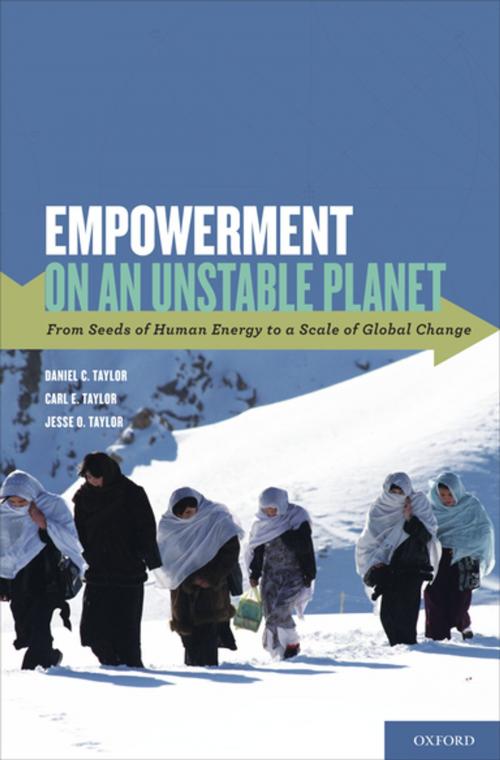Empowerment on an Unstable Planet
From Seeds of Human Energy to a Scale of Global Change
Nonfiction, Social & Cultural Studies, Social Science, Social Work| Author: | Daniel C. Taylor, Carl E. Taylor, Jesse O. Taylor | ISBN: | 9780199924318 |
| Publisher: | Oxford University Press | Publication: | November 17, 2011 |
| Imprint: | Oxford University Press | Language: | English |
| Author: | Daniel C. Taylor, Carl E. Taylor, Jesse O. Taylor |
| ISBN: | 9780199924318 |
| Publisher: | Oxford University Press |
| Publication: | November 17, 2011 |
| Imprint: | Oxford University Press |
| Language: | English |
Since World War II, development projects have invested more than two trillion dollars towards health services, poverty alleviation, education, food security, and environmental initiatives around the world. Despite these efforts, 20% of the world still lives on less than $1.50 a day and the environment within which all live declines dramatically. There are clear limits to what further investments at this rate can achieve. This book advances the thesis that a more effective and universal foundation for social change and environmental restoration is not money, but human energy. Using this approach Tibet recovered from being nearly deforested to having over 40% of its land area protected under conservation management. Using principles outlined in this book mothers in northeast India implemented a package of life-changing actions that halved child mortality. They parallel the way New York City has created a citywide conservation program over three-and-a-half centuries. Each of these examples is particular to its time and place, yet a shared set of principles is at work in all of them. Improving the quality of life for a community starts by strengthening successes already operating. It involves local knowledge and a relatively simple set of principles, tasks, and criteria designed to empower communities. This highly readable account demonstrates how a comprehensive process for social change harnesses the energy of a community and scales it up with a rising number of participants becoming invested in increasingly high-quality work. Richly illustrated with photographs and stories of innovative people and programs in communities ranging from Nepal to Afghanistan to the South Bronx, it provides practical, proven guidelines for creating profound and sustained social change that begins in individual communities and grows to scale.
Since World War II, development projects have invested more than two trillion dollars towards health services, poverty alleviation, education, food security, and environmental initiatives around the world. Despite these efforts, 20% of the world still lives on less than $1.50 a day and the environment within which all live declines dramatically. There are clear limits to what further investments at this rate can achieve. This book advances the thesis that a more effective and universal foundation for social change and environmental restoration is not money, but human energy. Using this approach Tibet recovered from being nearly deforested to having over 40% of its land area protected under conservation management. Using principles outlined in this book mothers in northeast India implemented a package of life-changing actions that halved child mortality. They parallel the way New York City has created a citywide conservation program over three-and-a-half centuries. Each of these examples is particular to its time and place, yet a shared set of principles is at work in all of them. Improving the quality of life for a community starts by strengthening successes already operating. It involves local knowledge and a relatively simple set of principles, tasks, and criteria designed to empower communities. This highly readable account demonstrates how a comprehensive process for social change harnesses the energy of a community and scales it up with a rising number of participants becoming invested in increasingly high-quality work. Richly illustrated with photographs and stories of innovative people and programs in communities ranging from Nepal to Afghanistan to the South Bronx, it provides practical, proven guidelines for creating profound and sustained social change that begins in individual communities and grows to scale.















